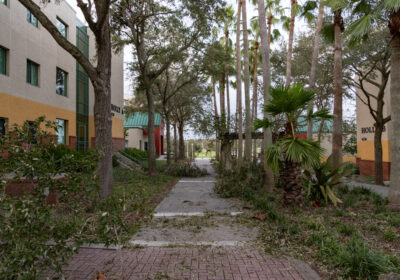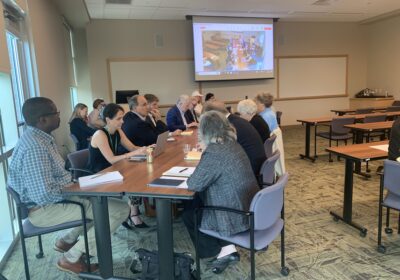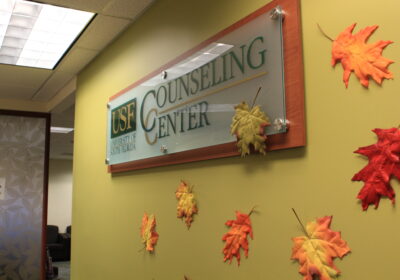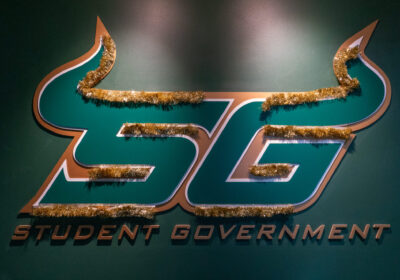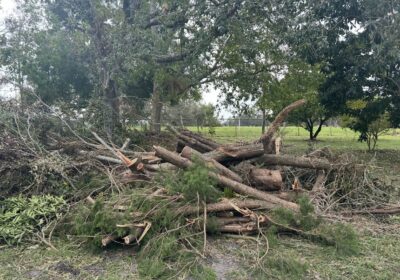Career Services kicks off virtual career fair Tuesday
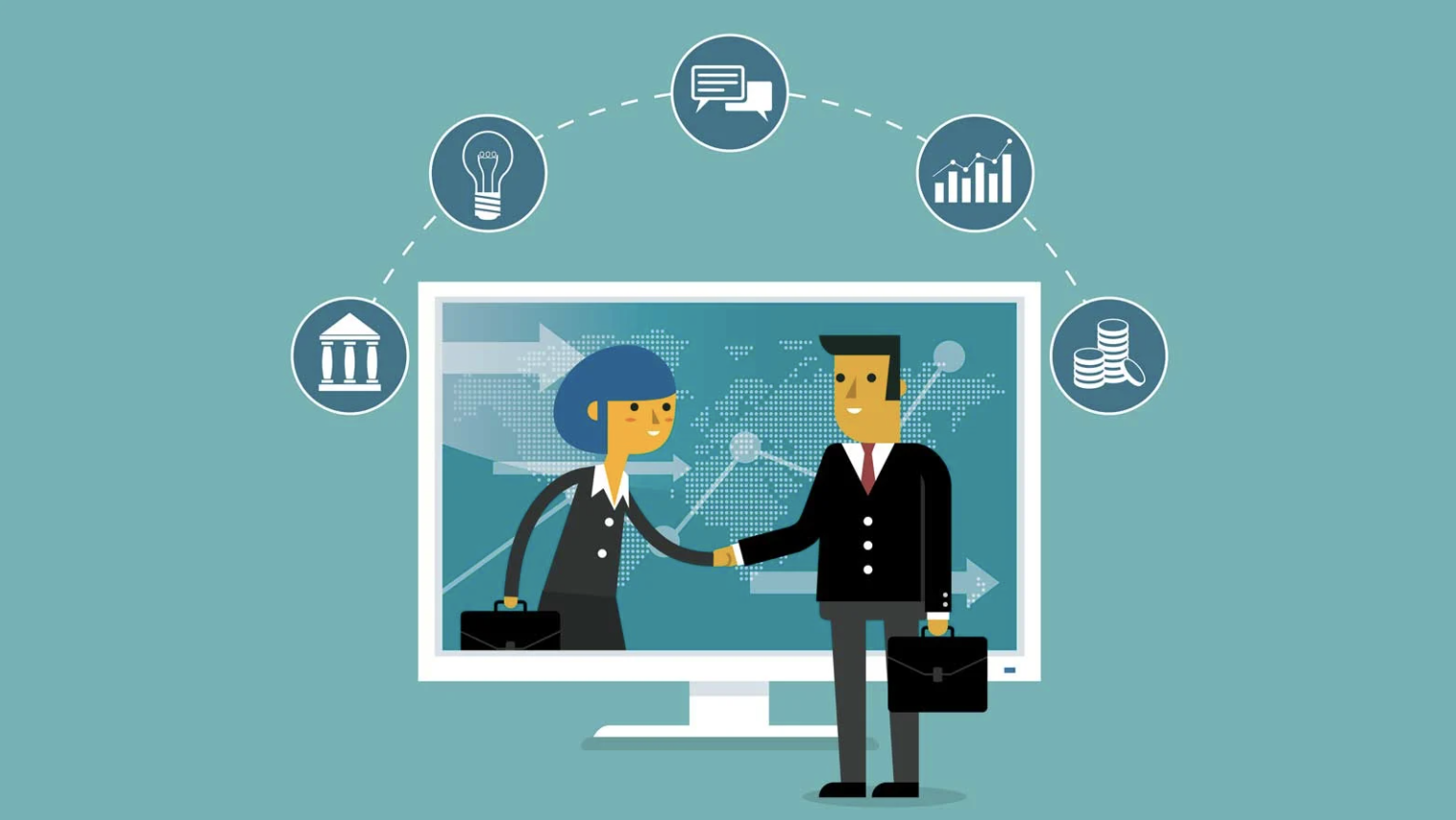
The biannual Bulls Connect Fair usually gathers thousands of job or internship-seeking students together at the Yuengling Center each semester. This year, it not only had to adapt to mandated public health guidelines in light of COVID-19, but also to the new needs of the recruiters — all while going virtual.
USF Career Services has split its full-day Bulls Connect Fair into four different virtual fairs throughout this week starting Sept. 15 and ending Sept. 18 to accommodate a newfound need for targeted recruitment by employers.
The fairs will be held using the events feature within Handshake, a virtual platform meant to connect employers with those seeking employment, and is free to USF students and alumni. The feature allows participants to register for the live virtual events hosted by employers once they’ve registered for the appropriate Bulls Connect Fair.
The different fairs are Health, Education and Human Services on Sept. 15, All fields will be participating on Sept. 16, Engineering and Technology on Sept. 17, and Accounting on Sept. 18. All fairs will be held virtually on Handshake, from noon to 4 p.m.
“This year, we have got four [fairs] that are a little more well-defined by field, because we’re trying to help employers connect with the right students and to make sure that students have the most opportunity, as opposed to having one big fair [online],” said Career Services’ Communications and Marketing Officer Peter Thorsett.
Splitting the fair and making it more specialized will make the process of matching up employers with students more efficient, especially after how certain fields of work have been affected by the pandemic, according to Thorsett.
“A constant refrain we keep hearing is that [the recruiters] are uncertain of what the future’s going to bring,” said Thorsett. “So they’re being very targeted in their recruitment efforts, or we have had some companies that have been a little aggressive, where they see this as an opportunity to grab the best talent, and to be ready for whatever comes next when we emerge from the current situation.”
Some of the fields that have taken the latter approach include engineering and technology employers, according to Thorsett.
“Especially in engineering and [technology], you see a lot of companies who are like ‘Hm, I’m going to try and get the best people I can rather than waiting, and use that to my advantage to build my workforce so I’m ready for when the economy starts to pick back up again,’” said Thorsett.
Insight Global, a talent solutions company based in Atlanta, and participating in the Bulls Connect Career Fair, is also taking this same approach to recruitment — making sure that the time taken to recruit new employees will not be spent in vain.
“At Insight Global, we only promote from within, so we want to make sure we are hiring the best fit for our company,” said Insight Global’s Talent Acquisition Specialist Alexandra Monopoli.
However, there are some employers who have opted not to return to the Bulls Connect Fair at all, but not due to the virtual switch, according to Thorsett. For some businesses, the effects the pandemic has had on the economy has limited their ability to expand themselves.
“I think employers in the past, who have come to USF that may not be returning this fall, it’s more connected to the economy than to the switch from physical to virtual,” said Thorsett. “One of our big accounting firms, PricewaterhouseCoopers, they’ve made an internal decision to invest their resources on their existing staff rather than adding new staff, just to be ready in case the economy does something weird.”
Thorsett said decisions like these are most likely influenced by the severe economic downturns from the past few months. Of the 16.9 million people unemployed in July, 78 percent of them were temporarily unemployed due to the pandemic, according to the U.S. Bureau of Labor Statistics.
The same can be said for the health care industry, as they’ve had to adapt their hiring practices after their operations changed as a result of the pandemic.
“Some of the health care companies that have been with us in the past have kind of paused for a minute earlier this year because of COVID-19,” said Thorsett. “There was a hold on elective surgery, so when that hold happened, all of their revenues took a dip, and so now they’re kind of figuring ‘OK, revenues are down, how do we maintain our staffing, and how do we do this?’”
Overall, the virtual environment hasn’t been a factor halting the participation of employers at the fairs yet — however, that doesn’t mean it hasn’t been an obstacle for some to overcome.
“The biggest hurdle for me was the mess of a Handshake account that was left to me from previous recruiters — I don’t believe it had been used for two years,” said USF Peace Corps recruiter Kristen Vogel. “I have had to spend a lot of energy and time in making it work again.”
While Vogel didn’t have the best experience with the Handshake platform, students should have an easier time by logging in with their NetID, which will provide them access to register for the fair. Once registered, students should register for either group sessions or one-on-one meetings with the employer(s) of their choice.
“Handshake builds their schedule for [the participants],” said Thorsett. “So what’s cool is, on the day of the fair, when [you] log back in, all you have to do is keep clicking the links as the time moves on to go from session to session.”
Career Services has tried to be accommodating to students’ needs as well by hosting virtual “drop-in” hours to help them prepare before attending one of the fairs.
“A student can just pop into a Microsoft Teams environment to get help with their resume, practice their elevator pitch or if they have general questions,” said Thorsett.
The timing of the fairs has also been changed to help students who may not have as much flexibility in their schedule.
“The other big thing that we’ve done is we’ve moved the time — so it’s now 12 to 4,” said Thorsett. “We recognize that students are either going to class, or if they have part-time jobs or have other things they need to be doing, so we tried to include some late afternoon hours for students as opposed to morning hours where students had more trouble getting to, this way hopefully they’ll be able to have more opportunities to connect with employers.”
All of these extra measures paint a different picture than the Bulls Connect Fair that USF hosted over the years.
“There has to be information awareness on both sides of the equation,” said Thorsett. “The employer has to know ‘What am I recruiting for, who do I want to meet with?’ and the student has to know, ‘What is the employer looking for and why do they want to meet with me?’
“We’re trying to fix that information gap.”

